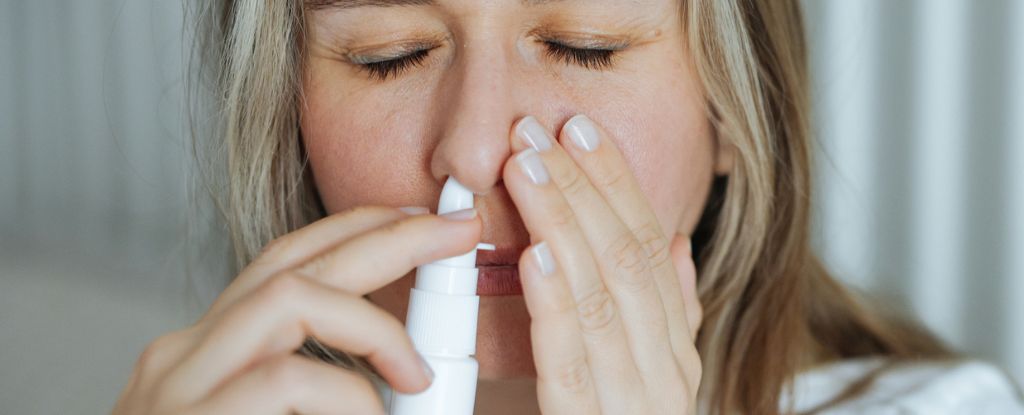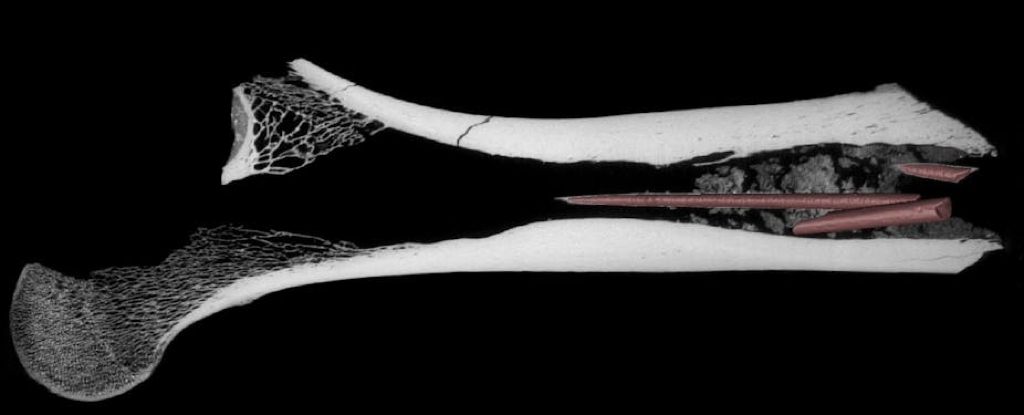A ketamine-based nasal spray is officially the first and only standalone therapy available for treatment-resistant depression in the US.
The FDA first approved the Johnson & Johnson drug, called Spravato (esketamine), for some cases of depression in 2019, but it was only allowed to be prescribed alongside an oral antidepressant.
After reviewing no less than 31 clinical trials from the past six years, including a recent phase 4 trial, the agency has now decided the Spravato spray can be used on its own.
The training wheels are essentially off.
Patients eligible for the Spravato spray include adults with depression who have tried at least two antidepressants without adequate improvement in symptoms, as well as those with major depressive disorder who have acute thoughts of self-harm or suicide.
By some estimates, one-third of patients with major depression do not improve with oral antidepressants alone, and while Spravato doesn’t seem to work for everyone, for some, it can be life-changing.
“For more than six years, I’ve seen firsthand the real-world impact Spravato can have on patients’ lives,” says psychiatrist Gregory Mattingly, who was part of the original clinical trials on the drug.
“Now that it is also available as a monotherapy, healthcare providers have the freedom to further personalize treatment plans based on individual needs.”
Phase 4 clinical trials are conducted after a medicine has already made it to market to gather even more evidence on its effects.
In 2024, Johnson & Johnson announced that its phase 4 trial of Spravato as a standalone therapy had shown no new safety concerns. Compared to a placebo spray, the ketamine-based spray appeared to be efficacious, safe, and tolerable when administered biweekly as a treatment for resistant depression.
In some patients, symptoms were alleviated as soon as 24 hours after the first spray. Four weeks into the trial, 22.5 percent of patients taking Spravato had achieved remission, compared to only 7.6 percent of those taking the placebo.
The results support years of clinical research and numerous real-world anecdotes.
Johnson & Johnson reports that Spravato has treated more than 100,000 patients in 77 nations worldwide, including roughly 80,000 in the US alone.
The active ingredient in Spravato is called esketamine, and it is conventionally used as an anesthetic.
Both esketamine and ketamine, its parent compound, show benefits for treating some forms of depression. Esketamine, however, is two to four times more potent than its parent, which means patients can take a lower dose.
While it’s not yet clear why either of these drugs work as antidepressants, scientists know they act on a pathway that affects glutamate, which is the brain’s most abundant chemical messenger.
Conventional antidepressants, meanwhile, increase other chemical messengers in the brain, like serotonin, norepinephrine, or dopamine.
A substantial number of those with depression, however, do not respond to these medicines, and even among those that do respond, the benefits may not always be meaningful or lasting.
Unlike oral antidepressants, some animal studies suggest esketamine might even help the brain form new connections, protecting against volume shrinkage associated with depression.
That still needs investigation in human trials, but research suggests other hallucinogens, like MDMA, LSD, or psilocybin, can also ‘rewire’ the brain. That’s partly why they hold such great therapeutic potential.
Many of these drugs, however, come with unwanted side effects, like hallucinations or disconnection from the self, which makes practical dosing difficult.
After a spray of Spravato, patients often experience sleepiness, dizziness, breathing problems, or feelings of disconnection, which tend to peak at 40 minutes and fade after about two hours. The spray may also impair judgment, thinking, reaction speed, and motor skills, which means patients should not operate machinery until the following day.
Spravato isn’t perfect, but it is the first new medication for major depression approved by the FDA in decades.
“Treatment-resistant depression can be very complicated, especially for patients who do not respond to oral antidepressants or cannot tolerate them,” says Johnson & Johnson neuroscientist Bill Martin.
“For too long, healthcare providers have had few options to offer patients much-needed symptom improvement.”





